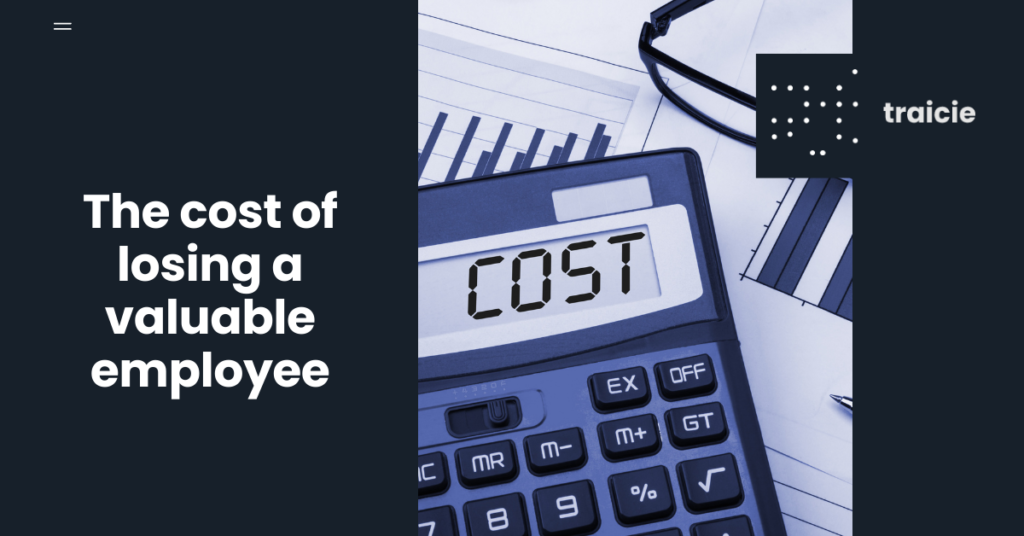Nowadays, retaining employees is a big problem for businesses. The turnover costs are high, and the war for talent is only getting more competitive. So what can you do to prevent your best employees from leaving? Are you curious about “5 Useful Tips to Retain Valuable Employees in the Great Resignation”?
How do you retain valuable employees from moving on to greener pastures once you’ve found them? This article will give tips on keeping your best employees engaged and invested in your company.
What causes valuable employees to leave?

Employees might leave a company for many reasons. Some of the most common reasons are feeling undervalued or unappreciated. If employees don’t feel like they are being paid enough or allowed to advance, they will likely look for a new job. Additionally, if your workplace is not a good fit for an employee’s personality or lifestyle, they will also be likely to leave. To retain the best employees, you must know why they choose to leave. Below are some popular reasons:
The company hasn’t grown much
Professionals want to grow in their jobs, a lack of opportunities to do so is one of the two main reasons people quit their jobs. Employees can feel like they have a long-term future at a company if they are recognised for their hard work, thanked for a job well done and given a clear career path.
Feeling underpaid
The salary is another big one. Employees can easily find out how much their peers at other companies are making. This makes them very aware of how much they are worth on the market. By giving them competitive pay and additional benefits, you can get them to stay. Remember that not every resignation is about money and that you may need to find out what is going on to keep an employee.
| >>> Learn more about: How to effectively listen to employees’ needs? [6 Tips]
No longer challenged
Good employees don’t want to do work that doesn’t challenge them or make them feel like they’re always learning something new. Setting new goals and giving employees new tasks helps them feel useful and keeps them interested.
Feeling undervalued
People who work want to be noticed for what they do. When a company doesn’t care about what an employee has done, he or she may look for value elsewhere, like a new job. Set up a system that verifies good employees to feel like they are an essential part of the company.
Corporate culture no longer fits
This may be the most complex problem to fix. The other reasons are more employee centered, the corporate culture is often a company-wide problem. But open communication between managers and employees at work can help keep people from leaving. Giving people the chance to network outside the office also builds loyalty and a sense of belonging.
| >>> You also need to know: Culture Fit: What makes candidate a cultural fit?
Even though employers would rather keep a good worker than hire a new one, losing an employee must not be frustrating. Many employers think there is reason to be hopeful when professionals quit: 94% of people think resignations are a great chance to bring in new talent.
The cost of losing a valuable employee

Studies have shown that the average cost of replacing an entry-level worker can be as much as 60% of that worker’s salary. For a supervisory job, the cost of replacing that person could reach 160% of their annual salary.
The high cost associated with replacing someone with a supervisory job is caused by several things. For example; the fee paid to recruiters, the time it takes to interview and hire candidates and the possibility that the candidate will ask for a higher salary. The University of Pennsylvania found that external hires ask for 21–25% more pay than internal hires.
| >>> Do you know that: Employee Engagement & Morale Statistics Trends 2022 [Updated]
When a knowledge worker leaves your company, finding a new one can take eight to twelve weeks. When a new person joins the team, it will take at least four to eight weeks to be fully trained, comfortable and productive in their new role.
For example, suppose the lost employee was a salesperson who usually brought in $120,000 a year. In that case, your company will lose $22,000 every three months if you don’t find a fully-trained replacement (and given the maximum time stated above, it may take five months to reach total capacity).
During an employee’s time at a company, they learn things and gain insights that help the organisation do well in the long run. But in many cases, especially if your company doesn’t have a procedure to write down or save that information, that knowledge only lives in their heads. When an employee quits, they take that information with them.
Sharing knowledge must be a top priority if you don’t want to lose all of this information. Consider implementing an easy-to-use, user-friendly knowledge management platform and making it part of employees’ jobs to keep documentation and processes up-to-date. Encourage collaboration, coworking and cross-training by making the workplace a place where these things are easy to do. This will make it easier to share knowledge and stop people from keeping it all to themselves.
How to retain valuable employees?

One way to retain your valuable employees and reduce turnover is to offer them competitive salaries and benefits. In addition, providing opportunities for professional development and growth will show your employees that you value their skills and dedication.
Creating a positive work environment where employees feel like they are part of a team is also essential. Finally, offering regular feedback and recognition for a job well-done will help your employees feel appreciated.
It would help if you did what you could to prevent employee turnover as an employer. Turnover can be costly, disrupt your workplace and negatively impact morale. Here are some tips for avoiding employee turnover:
Pay more than the average salary
One of the most obvious ways to retain good employees is to pay them more than average and give them significant benefits. This can make it hard for employees to leave and make them want to stay because of the pay and benefits. You can also give a specific bonus for staying with the company as an incentive.
| >>> You might not know about: Bonus and incentives: What Is The Difference?
Let your staff say what they think
Even if it seems like a small thing, making a culture where employees can speak up freely (within reason) can keep them interested and make them want to stay. Many employees might be afraid to speak up because they don’t want to get in trouble. It’s essential to ensure workers feel safe bringing up things they’d like to see changed.
Make part of your employee’s pay depend on how well the company does. This will ensure that their goals align with the company’s goals for revenue and profit and give them a reason to stay with the company as it grows. By making it so that the fixed cost of payroll changes based on how business is going, you can make your company more flexible and resilient while also treating your employees very well.
More advices
Respect your employees and give rewards
On top of their pay, show your best employees regularly that you value them. This can be done by praising employees in public, celebrating their birthdays, giving them bonuses and giving them positive feedback. People who work for you want to know that you respect and value them. People may not remember what you said, but they will never forget how you made them feel.
There are a lot of scary stories about the horrible things tired or stressed-out managers said or did at work. But let’s say managers make it a point to show respect for their employees often. In that case, it will lead to strong and lasting workplace culture and give them good experiences and memories they will never forget.
The total rewards you give your employees should meet more than just their financial needs; they should also make them feel good. Recognition in front of the whole company, parties within the company or department, service projects, lunches with the boss, logo clothing, handwritten notes, etc., can all contribute to the company’s positive culture and boost morale.
Give people the chance to grow
It might be tempting to keep your best workers in the same job with the same responsibilities. Why should they change what they are doing if they are doing better than expected? But workers who do the same things repeatedly can also get lazy. Give it some thought if they want you to do more or change something.
traicie can help you by mapping your employees with open vacancies within your company. Interested in how we can improve your internal movability processes?
Provide flexibility
Even before the coronavirus and remote work became significant issues for many companies, employees wanted flexible work schedules. Flexibility is a big reason your best employees will stay with you.
Give people plenty of time off. Even though the economy is challenging, give people enough time for sick days, family trips, new babies, etc. Pacing work can be constructive for building solid relationships with employees. You should expect and even demand high-quality work, but you shouldn’t expect pressure to stay 100 percent. Give people a chance to catch their breath between tasks by giving them team-building activities or short breaks throughout the day.
Using these tips, you can help retain your best employees and avoid the high costs associated with employee turnover.
Conclusion
There are many ways to retain valuable employees, but the most important thing is to ensure they feel valued. Show your employees that you appreciate their hard work and dedication by investing in their development, offering competitive compensation and benefits and creating a positive work environment. When your employees feel like they are an integral part of your company, they will likely stick around for the long haul.
Do you know that traicie’s sourcing tools for recruiters can help the hiring team with culture-based hiring but also in improving the strategic, operational value of the recruiting process :
- Cost of a job board – Reduce annual spending on job boards
- Cost of HR tools – Reduce the cost of surveys and assessment tools
- Recruitment costs – Reduce selection costs
- Internal mobility – Fill more skilled jobs with internal staff
- Time to hire – Reduce the number of days a role goes unfilled
- Salary costs – Reduce overall salary costs
- Attrition – Reduce the rate of turnover
- Recruitment cost – Reduce the general recruitment cost
2 thoughts on “5 Useful Tips to Retain Valuable Employees in the Great Resignation.”